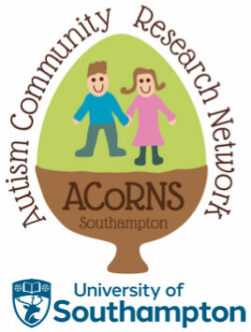
Chloe East.
PhD Psychology.
Transitioning from primary to secondary school can be challenging for autistic children. Issues with home/school communication, organisational challenges, and concerns about bullying and friendships have all been found to be particularly stressful for children at this time. The transition is particularly difficult for autistic girls. Due to differences in the way autistic traits are perceived in girls, they are likely to receive their diagnosis later than boys – often after they have started secondary school. Girls are therefore less likely to receive the appropriate support.
This research consists of a participatory project in which my knowledge and experience as a teacher and researcher, is combined with the lived experience of a group of teenage autistic girls to better understand transitions. Our group is called FIZZACC, and we have been working together as co-researchers since August 2021.
The project has involved using creative methods to generate understanding of our experiences at school. We have each created a body map on which we have drawn, written and collaged our thoughts and feelings about different aspects of school life. We are analysing the data we have collected by creating stories based on the key messages we want to convey. This is to ensure that the voices of the co-researchers are clearly heard.
The insights we have gained about how autistic girls experience school have led us to the production of resources for teachers and pupils. These resources aim to support teachers and peers to recognise the challenges faced by autistic girls in school, and the strategies that can be put in place to prevent these challenges. We are now working to discover how these resources are received in schools.
An important part of this project is consideration of the impact of participating as a co-researcher. Through discussions in FIZZACC group meetings and individual interviews we hope to discover the benefits and challenges of this kind of participatory research for the co-researchers and therefore offer insights for future projects.
The project aims to answer the following research questions:
- How can body mapping support autistic children and young people to express their feeling around transitions?
- What are the experiences of autistic girls in schools during the primary to secondary transition?
- How can co-producing resources lead to an improvement in the provision of support and understanding for autistic girls in education?
- What are the benefits and challenges of participation in research for autistic girls?
